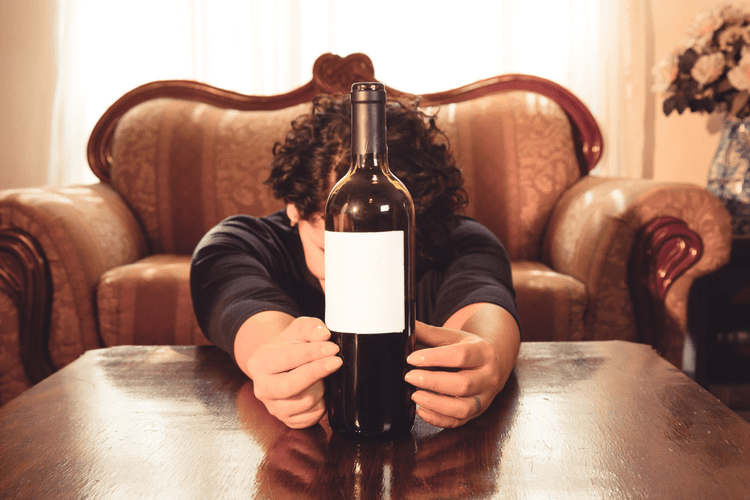Content
Alcohol can make some medications less effective by interfering with how they are absorbed in the digestive tract. In some cases, alcohol increases the bioavailability of a drug, which can raise the concentration of the medication in your blood to toxic levels. Here is what you need to know about the possible unsafe blood thinners and alcohol interactions between alcohol and common prescription and over-the-counter medications. If you’re drinking excessively or regularly, you are increasing the risk of adverse medication reactions. The combination of medication and alcohol can lead to serious health consequences, including overdose and even death.
Can you live a normal life taking blood thinners?
Life with blood thinners can be overwhelming at first, but eventually, you can still live a very normal life with these medications. Blood thinners do not actually thin your blood, and they do not heal or dissolve blood clots.
They often find it more difficult to restrict their alcohol use to a moderate amount or avoid combining alcohol with blood thinners. This increases the likelihood of complications from mixing alcohol and blood thinners. When alcohol is included in the mix, it can alter how thin your blood is and also change how active the medication is. This ultimately affects the delicate balance that doctors hope to achieve while using blood thinners. Depending on how this interaction works, it could cause the blood to become too thin, creating a high risk for bleeding from minor injuries. It could also reverse the effects of the blood thinners, increasing the risk of dangerous conditions like heart attack or stroke. Some antibiotics and anti-fungal medications can make blood thinners more potent and increase the risk of bleeding.
Your medication, $49 per month
When there is excessive bleeding, it is critical that you seek immediate medical attention. If you are having difficulty controlling your alcohol consumption, you should inform your doctor. The possible result of the concomitant use of blood thinners and alcohol has always been uncertain.
Okay, but can you switch medications to make it safer to imbibe? Learn about the side effects of mixing both drugs, as well as precautions to take and treatments. As females retain more alcohol in the bloodstream than males, they are at higher risk of developing problems from combining alcohol with medications. The treatment of alcohol dependency involves a variety of different methods. The National Institute https://ecosoberhouse.com/ on Alcohol Abuse and Alcoholism and the National Institute of Health are both trusted sources you can access to get help for yourself or a loved one. A combination of medical advice from a health care provider, social, and family support is also essential. Females retain more alcohol in the bloodstream than males, so they are at higher risk of developing problems from combining alcohol with medications.
Top Reads in Health Education
PE occurs when there’s a blood clot in one of the pulmonary arteries of the lungs, which typically happens when the clot moves from another location such as the legs or arms. Reviewer specialties include internal medicine, gastroenterology, oncology, orthopedic surgery and psychiatry. Call your doctor and go to the hospital immediately if you have had a fall or hit your head, even if you are not bleeding.
- A 2006 Harvard study found that moderate alcohol use did not have a significant negative effect on the livers of men taking statins after heart surgery.
- Healthline has strict sourcing guidelines and relies on peer-reviewed studies, academic research institutions, and medical associations.
- It also stated that nearly 42% of adults partook of alcohol while on medication.
- However, heavy drinkers may be at risk of severe complications like excessive bleeding and death.
- Therefore, it is important that individuals who take blood thinners such as Xarelto exercise extreme caution when it comes to the consumption of alcohol.
Over the years, Borrelli has maintained various leadership roles. In addition, Borrelli has authored several publications and lectured on various healthcare-related topics.Ellie Swain Content Contributor Ellie Swain earned her B.A. In Sociology from the University of Sussex in the United Kingdom. After working in digital marketing and copywriting after graduating, she transitioned to full-time freelance writing and editing. She works to produce authoritative and research-backed addiction content to encourage people to find the support and treatment they need. Thin blood resulting from disrupted clotting can increase the risk of excessive bleeding.
How to Thicken Blood After Drinking Alcohol
The safest way to avoid complications is to refrain from exceeding the recommended daily intake of alcohol. About 30 grams of alcohol — equating to two standard drinks — can lower fibrinogen levels, which can affect blood clotting. Researchers have found that low-to-moderate drinking could reduce certain processes that lead to heart disease and inflammation.
Blood Thinners and Alcohol: Everything You Need to Know – Healthline
Blood Thinners and Alcohol: Everything You Need to Know.
Posted: Wed, 13 Mar 2019 23:07:20 GMT [source]



